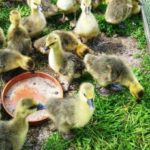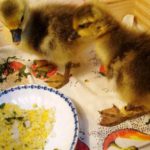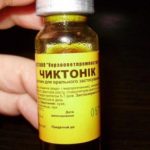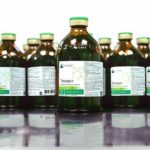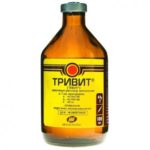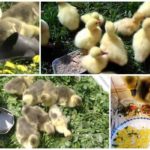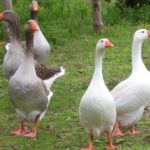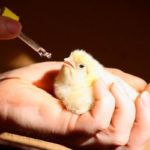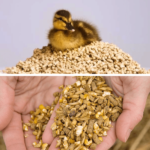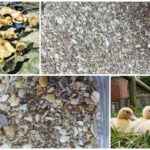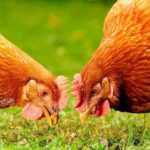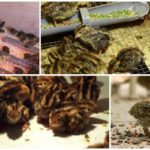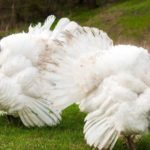Effective breeding of geese requires breeders to have a competent approach from the initial stage of the bird's life cycle. A balanced diet is considered the key to the health and harmonious development of young animals. Vitamins are necessary for goslings already in the first days of life when raising birds at home. Vitamin components complement the diet and participate in the regulation of biological processes that ensure the stamina and viability of the brood.
What vitamins should be given to geese?
Vitamins are biologically active compounds that, in small doses, regulate the most important biochemical processes in the body of birds. The lack of these substances causes various diseases and disrupts physical development. With hypovitaminosis, geese weaken, grow poorly, and become vulnerable to infections and parasites.
To raise healthy birds, it is necessary to ensure the presence of vitamins A, D, B2 in the diet of young animals.
Vitamin A
Vitamin A (retinol) is involved in redox reactions in the body, the formation of epithelial tissues, and ensures visual acuity. A lack of retinol disrupts the functioning of various organs and systems. Hypovitaminosis manifests itself in goslings with the following conditions:
- decreased visual function;
- impaired coordination of movements;
- apathetic behavior;
- ruffled plumage (fluff);
- digestive disorders;
- exhaustion.
Retinol is found in fish oil, carrots, beets, pumpkin, and onion feathers.
Vitamin D
Vitamin D is used in the form of D2 (ergocalciferol) or in the more active form D3 (cholecalciferol). Hypovitaminosis causes the development of rickets in goslings. The bones of the legs, ribs, joints, spine, and breastbone are deformed. A characteristic sign is a change in the structure of the beak, which becomes soft and bends.
The recommended daily intake of the substance for 10-day-old chicks is 0.7-1.5 micrograms.
Vitamins for goslings B2
Vitamin B2 (riboflavin) is involved in the metabolism of proteins, fats and carbohydrates, the synthesis of hemoglobin and the maintenance of visual function. Hypovitaminosis appears in goslings with growth retardation, paralysis of the legs, and disturbances in the digestive tract (diarrhea).
Goslings also need tocopherol, pantothenic and nicotinic acids. Chicks partially receive vitamin compounds from food and herbs. Additionally, to prevent hypovitaminosis, goslings are given the following medications:
- "Nutril Se";
- "Chiktonik";
- "Trivit";
- "Tetravit";
- fish fat.
Vitamin complexes are especially relevant in the cold season, when goslings are in the poultry house and there is no fresh greenery or its quantity is limited.
How to give vitamins correctly
Vitamin preparations and premixes are given to goslings, mixed with food, and in the early stages of development - with water. Giving drugs to goslings begins from the first day of life. The hatched chicks begin to be fed immediately after drying. Food is offered every 2-3 hours, starting with a boiled egg. On the same day, fresh herbs are mixed into the egg (usually chopped onion feathers), and a little steamed grain is added to the evening feeding.
From 3-5 days of life, the egg is removed, and the amount of grain and greens is increased. To meet the nutritional needs of a 5-day-old chick, it is necessary to give 2 times more greens than grains. The recommended amount is 50 grams.
From the age of one week, the diet of young animals becomes more varied. Legumes are added to the diet as a source of vegetable protein and B vitamins. To compensate for the deficiency of minerals, they begin to mix in meat and bone meal. Fish oil containing retinol and Omega acids is also added to the main food.
Increasingly, farmers are practicing alternative feeding with ready-made balanced mixtures. 7-day-old goslings can be offered fortified feed PK-5. Feed mixtures have also been developed for chicks from the first days of life under the name “Start”, containing all the necessary nutrients and vitamins in an easily digestible form.
From the 10th day of life, boiled vegetables are introduced in the form of mash. The majority of the diet is grass (100 grams per chick). Vitamin preparations are added to water. Month-old goslings are fed like adult birds. Vitamins are mixed into the feed.


